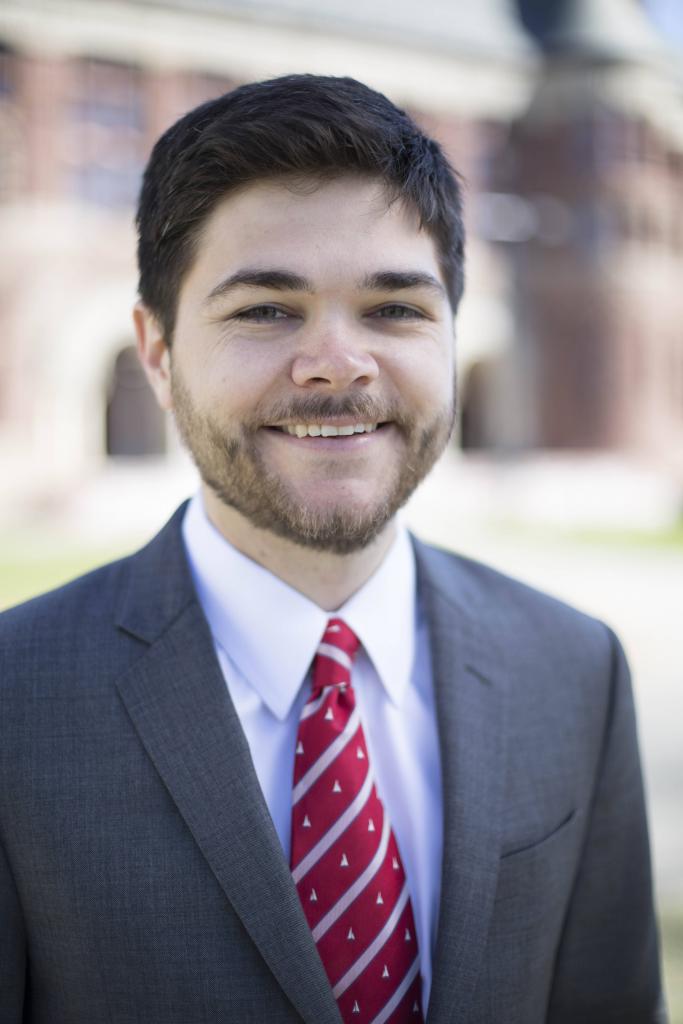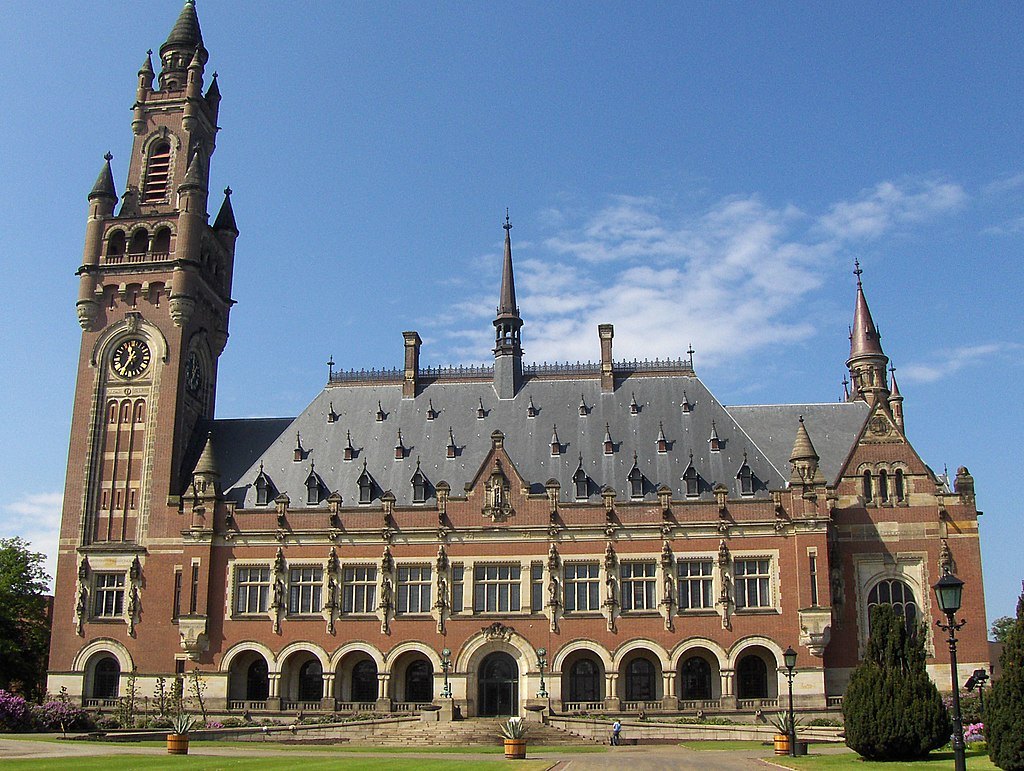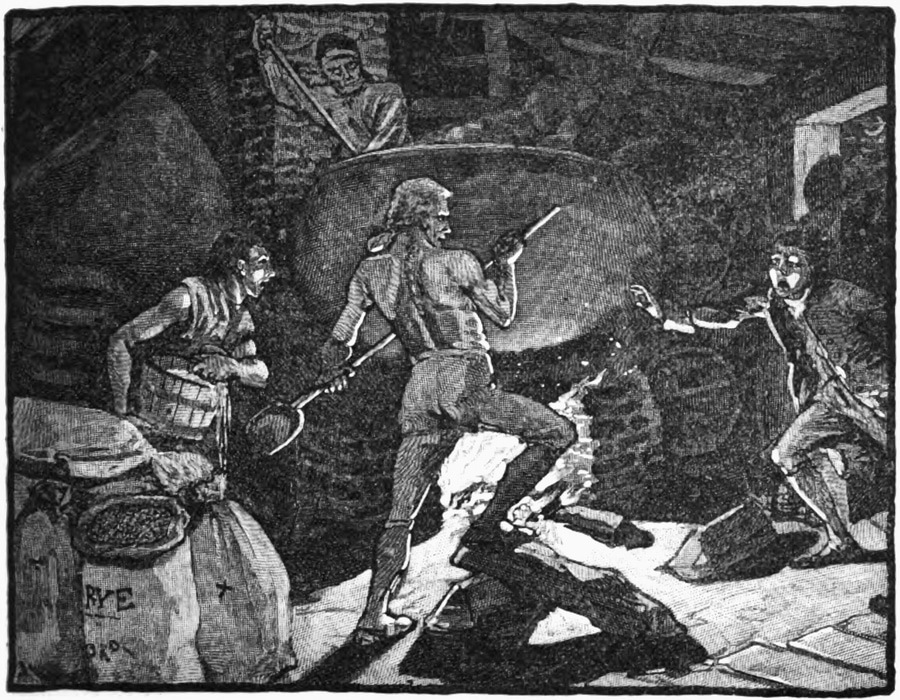NYPD Blues: The NYPD Inspector General Makes His Mark on Handschu
On October 28th, a federal judge in New York rejected a proposed settlement to the ongoing litigation concerning the New York City Police Department’s surveillance of Muslim communities in and around the city.
Published by The Lawfare Institute
in Cooperation With

On October 28th, a federal judge in New York rejected a proposed settlement to the ongoing litigation concerning the New York City Police Department’s surveillance of Muslim communities in and around the city. Counsel for both the NYPD and the plaintiffs, including lawyers for Muslim groups who had filed suit as well as lawyers who have negotiated NYPD investigation procedures for years, negotiated and agreed to the settlement. Despite the sign-off from these stakeholders, the settlement was scuttled, apparently because of a report from the newly created Department of Investigations Inspector General for the NYPD. The Inspector General was not a party to this suit, and his office is still finding its place within the myriad of watchdogs that currently oversee the NYPD. This post will examine the case and the Inspector General’s impact on it.
Handschu
Various political activists, led by Barbara Handschu, filed suit in 1971 alleging violations of their constitutional rights by the New York Police Department and its surveillance practices. The resulting class action, Handschu v. Special Services Division, led to a settlement in 1985 that was subsequently affirmed by the Second Circuit. That settlement established the NYPD’s policies regarding investigations into political activity, which have become known as the “Handschu Guidelines.” The certified class included:
All individuals resident in the City of New York, and all other persons who are physically present in the City of New York, and all organizations located or operating in the City of New York, who engage in or have engaged in lawful political, religious, educational or social activities and who, as a result of these activities, have, been, are now or hereafter may be subjected to or threatened by infiltration, physical and verbal coercion, photographic, electronic and physical surveillance, provocation of violence, recruitment to act as police informers and dossier collection and dissemination by defendants and their agents.
This broad language underscores the settlement’s importance. It affects an enormous number of people and has implicated different groups as the focus of NYPD investigations has shifted over time.
Among other things, the settlement created a “Handschu Authority” consisting of two deputy police commissioners and a civilian member appointed by the mayor. Under the Guidelines, the NYPD could not initiate an investigation of a group engaged in political activity or any undercover investigation without filing an Investigative Statement with the Authority that laid out the factual reasons for the investigation. Investigations could then only proceed for 30 days, after which they would require approval from the Handschu Authority to continue.
The role of this Authority, and in particular its civilian member, continue to be at the center of the discussions over Handschu. At the time of the original settlement, objectors voiced concerns that one mayor-appointed civilian member would be insufficient on a three-person Authority governed by majority rule. Presiding Judge Charles Haight addressed those concerns in his 1985 opinion by stating his expectation that the Mayor would not appoint a “silent booby to an important body whose work may be subject to court review,” and that if the civilian member was overruled repeatedly, he or she could raise the matter with the mayor as a “whistle-blower.”
Notably, Judge Haight continues to preside on all of these matters to this day. In 2003, Judge Haight loosened the restrictions of the Handschu Guidelines in response to an NYPD motion, writing that the original Handschu Guidelines “addressed different perils in a different time,” and that circumstances had changed sufficiently after 9/11 to warrant a revision.
One of the significant changes Judge Haight allowed in 2003 was a removal of the Handschu Authority’s approval power. Under the new scheme, Investigation Statements still had to be filed for approval, but approval came from NYPD supervisors as opposed to the independent Handschu Authority. Under the so-called “Modified Handschu,” the Authority's “sole function is to conduct the review of records,” related to the investigations of political activity. Individuals who suspected they were the subject of investigations that violated Handschu, could petition the NYPD for an explanation. The Handschu Authority would then investigate and report their findings to the individual, and, if there were found to be a violation of Handshu, to the Police Commissioner.
Handschu’s Latest Re-Opening
In 2011, the Associated Press published a series of Pulitzer Prize-winning articles revealing that the NYPD had been spying on various Muslim communities in and around the New York City area. After that disclosure, the class counsel in Handschu moved to open discovery on whether or not the NYPD had violated the guidelines, and subsequently moved to modify the guidelines in response to the NYPD’s actions. Contemporaneously, several plaintiffs who had been the subject of the NYPD’s surveillance of Muslims filed their own lawsuit, Raza v. New York City, in June of 2013. The two suits were combined in 2014 after the election of Mayor Bill de Blasio.
In January of 2016, the various plaintiffs and the City reached a settlement modifying to the Handschu Guidelines. The proposed settlement would have created an 11-member “Handschu Committee,” with one civilian representative (CR), appointed by the mayor. That committee would be responsible for monitoring all investigations of political and religious activity on a monthly basis and would have access to Investigation Statements requesting authorization, or extension, of an investigation from NYPD supervisors.
The CR, like the other members of the committee, would be able to ask questions and comment on those statements. In addition, the CR would be required to report any violations of the Handschu Guidelines to the Police Commissioner, who in turn would be required to perform an investigation and report on his findings to the CR. If the CR were to find repeated violations of the Guidelines, he or she would be required to report it to the court and Handschu class counsel. Additionally, the proposed settlement would give the mayor the ability to phase out the CR after five years if the mayor thought it unnecessary to keep the position.
The Inspector General Report
In 2013, the New York City Council created the Department of Investigations Inspector General for the NYPD, over the strong opposition of Mayor Bloomberg and the NYPD.* Philip Eure was installed as the first Inspector General for the NYPD in 2014, and in August of 2016 he issued a report on the NYPD’s compliance with the Handschu Guidelines. The report drew its findings based on a random sample of NYPD Intelligence Bureau cases closed between 2010 and 2015.
The report made a number of criticisms suggesting the NYPD was not complying with Handschu. For example, the report found that the NYPD regularly let deadlines pass before making the required written requests for extensions of investigations, and also detailed how the NYPD repeatedly failed to outline in writing the rationale for extending its investigations, either by giving reasons that were too generic or by not articulating any reasons at all. Requests for authorization to use an undercover officer repeatedly used “generic, boilerplate text to seek such permission,” even though such requests would almost certainly require fact-specific considerations. In fact, the report said the NYPD’s requests used text that was “so routine that the same typographical error had been cut and pasted into virtually every application” going back over a decade.
Much of the press coverage about the report focused on the finding that more than 95% of the NYPD investigations sampled focused on Muslims or individuals engaged in political activity associated with Islam. But the Inspector General did not criticize that fact. Instead, the report says that in all cases the NYPD “articulated facts sufficient to meet the informational threshold required to open an investigation.” In other words, the Inspector General took issue with the manner in which investigations were conducted and extended, but not with the manner in which they were opened.
John Miller, Deputy Commissioner for Intelligence & Counterterrorism focused on this positive conclusion in his response to the report, sent on behalf of the NYPD. Miller also contended that the Inspector General was mistaken to assume that “because some extension documents were late, investigative activity, including the use of confidential informants and undercover officers, necessarily occurred without authorization in the interim between expiration and renewal of the investigation.” In fact, he asserted there was no documentation to prove that investigations occurred during those periods. Miller submitted the response by letter to the Mayor, City Council Speaker, Inspector General, and Police Commissioner.
The Settlement Rejected
The Inspector General released his report in August, while Judge Haight was still considering the Handschu settlement. Class counsel forwarded “for your information” copies of the report and the NYPD’s response to Judge Haight, along with a statement that they did not agree with all of the Inspector General’s findings and that all parties stood by the proposed settlement irrespective of the report. In his opinion, Judge Haight responded by saying, “If this joint declaration by counsel for the parties is intended to convey, at least implicitly, the suggestion that the Court should not consider the Report in evaluating the fairness of the proposed settlement, I am unable to agree.”
Judge Haight’s rejection of that settlement quotes extensively from the report, and suggests the report was what caused him to send the parties back to the drawing board:
[The Inspect General’s findings] are more consistent with an NYPD accustomed to disregarding the Handschu Guidelines once an investigation or its continuance is authorized, rather than with a department dedicated to compliance with the Guidelines governing how the investigation is to be conducted. . . . The function of the proposed Handschu Committee, of which the Civilian Representative is a member, is confined to asking questions and making comments about the facial sufficiency of requests for authorization of the opening, extension, or closing of an investigation. The separate Guidelines that the Inspector General’s Report says the NYPD routinely violated fall outside the purview of the proposed Handschu Committee, as well as outside the limited ability of the Civilian Representative to express concern to other authority (Police Commissioner or Court). Approval of the settlement in its present form, with the Revised Handschu Guidelines as its centerpiece, would in these circumstances be unreasonable.
The Court went on to suggest the settlement should include provisions to expand both the oversight of the Handschu Committee the ability of the CR to communicate with the Court. Judge Haight wrote that he did “not think that the proposed limitations on the CR’s ability to communicate with the Court, at present confined to only one instance at the extreme end of hypothetical NYPD misconduct, are reasonable.” Specifically, the Judge suggested allowing the Committee to review and monitor compliance with all of the Handschu Guidelines, allowing the Civilian Representative to communicate with the Court at any time and requiring quarterly reports to the Court from the CR. Judge Haight also suggested limiting the mayor’s power over the position by giving the CR a five-year term, allowing the mayor to fire the CR only for good cause, and requiring the mayor to apply to the Court before phasing out the post.
The settlement rejection drew sharp criticisms as well as praise. Editorials from the New York Daily News characterized the Inspector General as “dishonest” while the Wall Street Journal called his report “politicized.” Both were unhappy to see Judge Haight give so much weight to the report’s findings. Meanwhile, the New York Times characterized the ruling as a “reasonable” check on a police department with “long history of trampling on the constitutional rights of law-abiding citizens engaged in political movements and other activities through illegal and suspicionless surveillance.” Additionally, some of the Council Members who were instrumental in creating the office of the Inspector General spoke out praising the ruling.
In comments to The Intercept after the announcement, attorneys for the plaintiffs admitted the ruling pleasantly surprised them. One of the attorneys, Jethro Eisenstein, said, “From our point of view, we rolled the rock up the hill as far as we could take it.” The same piece goes on to say:
“The ball is in the NYPD’s court,” Faiza Patel, co-director of the Brennan Center’s Liberty and National Security Program, told The Intercept. “Obviously the plaintiffs are going to be quite happy with these additional protections and so it’s really going to be up to the police department.”
It remains to be seen what will happen. But the Inspector General was created amid a great deal of political controversy. On top of that, many critics of the position argued it was unclear how the Inspector General would fit in with the patchwork of other existing NYPD oversight. This decision from Judge Haight suggests, however, that the position may add significant value for those interested in NYPD reform.
*The author of this post worked for New York City Councilmember Dan Garodnick from 2010 to 2015. The views in this post reflect the author’s views only.





